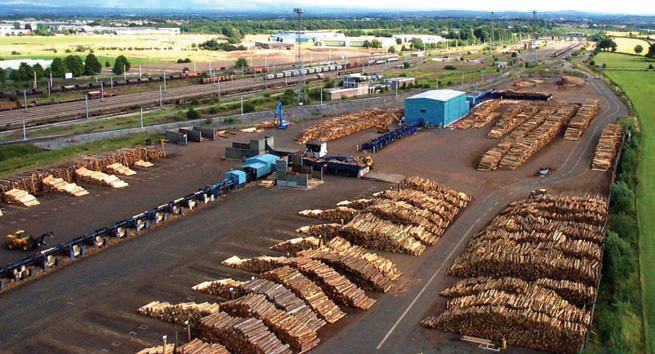Future Proofing
20 October 2015BSW Timber’s strategic move to acquire Tilhill Forestry is about vertical integration and security of material supply, the company’s CEO Tony Hackney tells Stephen Powney
BSW's recent acquisition of the UK's largest private forest management and harvesting firm Tilhill Forestry Ltd from UPM has certainly caused a stir.
The deal brings together two giants in the UK softwood arena - the £210m annual turnover BSW sawmilling business and the £120m turnover Stirling-based Tilhill.
BSW said the significant acquisition created the largest forest products company in the UK with a combined turnover of £330m, underscoring its ambition to increase the utilisation of UK timber and a forming key component of its vision for future development.
Tilhill Forestry will continue to operate as a subsidiary of BSW Timber with its own operational board, building its core strengths of forest management while delivering a secure and stable supply of home-grown timber to the market.
Tony Hackney, chief executive of BSW Timber Ltd, told TTJ that the company had invested about £120m in new mills, technology and acquisitions over the last six years.
"This is quite significant for us as we are a privately-owned company.
"When you have these assets in a business the next thing is the security of material supply.
"We are very nervous about fibre supply in the future. Everything we see in terms of statistics say we are OK in the short term but in the medium and long term there is an issue for the country."
"The ambition of vertical integration has been a very important aspect of both our previous and current five-year plans.
"We could see some change in UPM's strategy and there came the opportunity to acquire the largest and best private harvesting company in the UK.
"Another main driver is the dynamics of forest management and ownership.
The changes in the Forest Commission structure means privately owned forests are very important for us."
Currently, BSW procures 60% of its wood from private growers and 40% from the public sector. "That dynamic may change in the future," Mr Hackney added. "Whether it's public or private we have to be consistent with what we do."
"The acquisition gives an opportunity to get closer to the growers and maybe to do things differently to the way they were done in the past.
"We can offer a full service and the whole tree service. We can offer a value chain to the grower, from the stump to the tips of the tree."
Mr Hackney said a commercial operation which covers planting, harvesting, management and processing presented a compelling proposition for private growers.
He pointed out that many other sawmillers had their own forestry operations and that it wasn't the first time BSW owned a harvesting enterprise. It sold its previous harvesting arm to UPM back in 2002.
"This is not about driving profit but a long term view of a secure future for BSW."
In addition, Mr Hackney said the move was a significant step forward in championing homegrown timber because it showed a supply chain story from beginning to end - forest to end-use timber product. This, he said, also helped feed into the Grown in Britain message.
"This is quite a powerful message." Mr Hackney admitted that the exchange rate was currently against homegrown sawmillers.
"We can't criticise customers for choosing cheap Scandinavian timber. "But I hope over time the customer base and end-user will demand more FSC material and support the UK industry."
He said there had always been a stigma attached to UK produced timber but pointed out that the homegrown sawmilling business was a different proposition today, with material reject rates far less than some years ago.
And he said homegrown was not just about spruce, with over 20% of BSW's production in other species.
He said he did not think the acquisition would squeeze timber prices, and cited the choice of material on the market.
In addition, he said Tilhill would continue to be run as an independent subsidiary.

